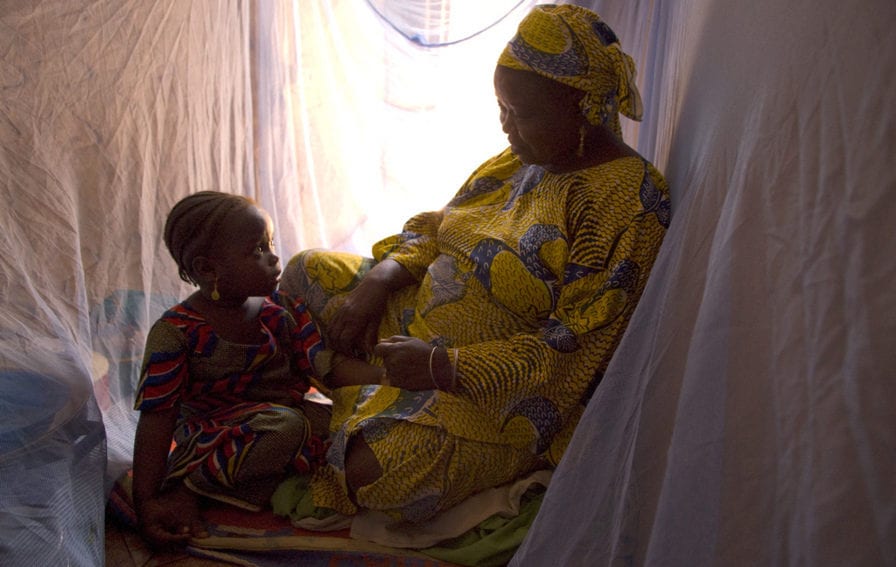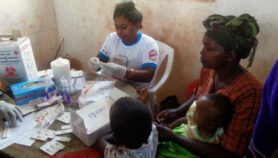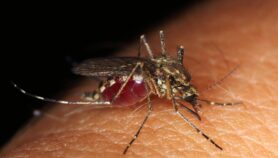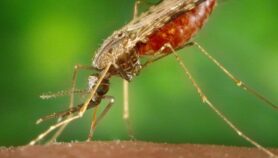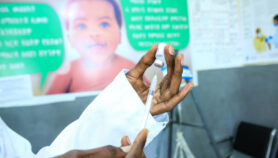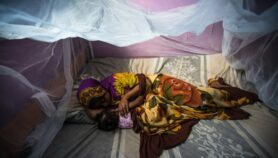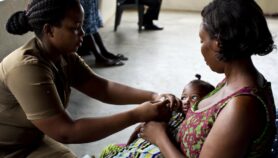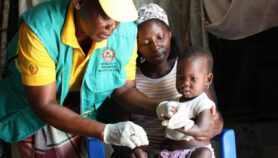By: Adole Abutu
Send to a friend
The details you provide on this page will not be used to send unsolicited email, and will not be sold to a 3rd party. See privacy policy.
[ABUJA] Malaria and typhoid fever are the biggest health concerns of Nigerians, a new survey that aims to amplify citizens’ voices on health matters shows.
The survey was conducted in February this year as part of ‘Hala Nigeria’ (meaning speak out, Nigeria), a project of the US-based International Center for Journalists (ICJ) that seeks to improve public information and engagement on health matters.
NOIPolls — a Nigeria-based opinion polls firm — conducted the survey, which involved telephone interviews of 1,001 adults selected randomly from a pool of 5 million mobile phone numbers in a database.
“The outcome of the survey is not surprising. More than 50 per cent of Nigerians who have fever will tell you they have malaria while in actual fact they don’t.”
Omokhudu Idogho, Society for Family Health Nigeria.
The findings were released 7 March in Abuja by the African Health Journalists Association (AHJA), a partner of the ICJ.
Declan Okpalaeke, president of the AHJA, who presented the findings, says that the survey was instituted to introduce a shift from the traditional method of reporting health-related stories by going back to the people and asking them what kind of information interest them.
“We are trying to introduce a culture of health reporting [that] puts citizens at the driving seat,” says Okpalaeke, adding that such an approach could help journalists provide information the public would like to know, but not necessarily the ones reporters would like citizens to hear or know.
According to the survey, 78 per cent of the sampled adults ranked malaria and typhoid as their biggest health challenges.
Despite HIV/AIDS and polio receiving much of Nigeria government’s attention, only seven per cent and two per cent of respondents respectively ranked the two diseases as the biggest health concerns. It also showed that 12 per cent considered diabetes and a further ten per cent viewed cancer as their biggest health challenges.
Omokhudu Idogho, programme coordinator, Society for Family Health Nigeria, says that the survey reflects a trend that medical practitioners have noticed in the country over the years.
“The outcome of the survey is not surprising. More than 50 per cent of Nigerians who have fever will tell you they have malaria while in actual fact they don’t,” he tells SciDev.Net.
Nnenna Ezeigwe, national coordinator of Nigeria’s National Malaria Control Programme, says malaria is a major health burden in Nigeria with more than 95 per cent of the population at risk.
Ezeigwe adds that the government is collaborating with Roll Back Malaria and other partners to institute preventive and curative measures to control the disease. Such measures include use of long-lasting insecticidal nets, indoor residual spraying, prompt and rapid malaria diagnoses before treatment with antimalarials, and awareness creation.
“The interventions have been very successful because between year 2000 — when the interventions began seriously and subsequently [were] scaled up — and 2010, malaria prevalence dropped from over 50 per cent to 42 per cent,” she says.
This article has been produced by SciDev.Net's Sub-Saharan Africa desk.


